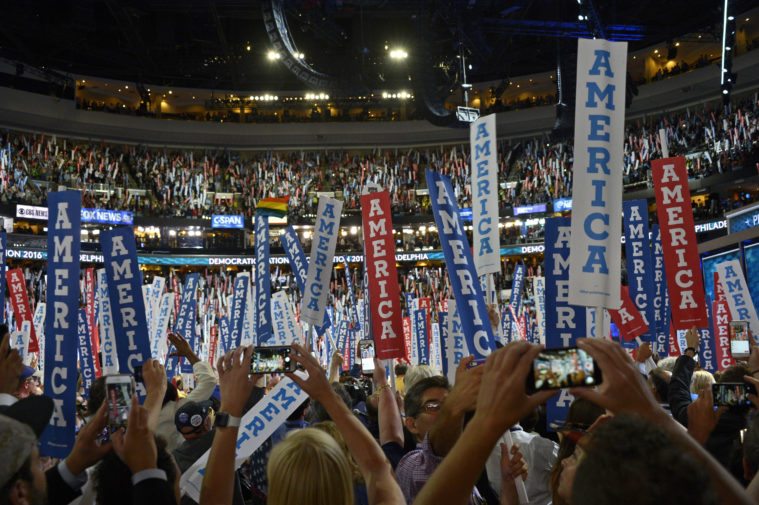
With the presidential election fast-approaching in November, the race for the Democratic nomination is well underway. Although the number of candidates peaked at twenty-nine in mid-2019, only eight now remain, with just five of these candidates considered to have enough support to be selected to run against Donald Trump in November.
Both registered Democrat supporters and so-called ‘independents’ are eligible to vote in the party’s primaries and caucuses, creating a diverse array of views for the candidates to consider. This means that the Democratic Party is more divided than ever before, with the five frontrunners falling into two distinct categories: moderates and progressives.
The Moderates
Considered by many to be the favourite ever since he announced his campaign last April, former Vice-President (to Barack Obama, nonetheless) Joe Biden has struggled since the primaries began on February 3rd. Biden spent 36 years in the Senate, as well as unsuccessfully running for president in 1998 and 2008, before he became Vice-President in 2009, so is considered to be the candidate with the greatest level of political experience. Biden’s key message has been to finish what he started when working with President Obama for eight years, a message that has resonated well with moderate voters. However, Biden has had a woeful start to the primaries, placing a disappointing fourth in Iowa and finishing fifth in New Hampshire. Despite these poor results, the former VP is not yet out of the race. Biden is extremely popular amongst voters from minority backgrounds, so is hopeful of picking up swathes of delegates on Super Tuesday (March 3rd), when states with high minority populations like Texas, California and North Carolina go to the polls.
At the other end of the experience spectrum is 38-year-old Pete Buttigieg, whose only role in politics has been as the Mayor of South Bend, Indiana – a town of just 100,000 people. Despite his lack of experience, ‘Mayor Pete’ has taken the race by storm in recent months. After a shock win in the Iowa and an impressive second place finish in New Hampshire, it seems as though Buttigieg has cemented himself as ‘the’ moderate alternative for Democrat voters. His strong debate performances have wooed voters who see Biden as too old, too establishment and too tainted to defeat the progressive wing of the Democrat Party, and Donald Trump. For many voters, Buttigieg embodies the moderate principles that saw Biden positioned as the initial favourite for the nomination but without the historical baggage that accompanies the former Vice-President. For example, both candidates firmly support public healthcare as an ‘option’ for voters, rather than as a replacement for private healthcare policies, which is advocated by the progressive candidates.
The last of the moderate candidates announced his candidacy on November 24th 2019, which is extraordinarily late, considering some candidates had been campaigning since January. Former Mayor of New York City and CEO of Bloomberg L.P., which took $10 billion in revenue in 2019, Michael Bloomberg has had anything but a ‘normal’ campaign. Opting not to enter into the Iowa Caucus or the New Hampshire Primary, Bloomberg’s unique campaign is focused on claiming a significant number of the 1,357 delegates on offer on Super Tuesday. Having previously said he wouldn’t run for the nomination; Bloomberg entered the race at a late stage due to fears that no existing candidate had the ability to beat Donald Trump. Pitching himself as the most pragmatic of the candidates, Bloomberg has centred his campaign on one issue: preventing four more years of Donald Trump.
The Progressives
Further to the left of the Democratic Party are two senators who have been fighting since February 2019 to earn the support of more radical voters. The first of the pair became was almost the architects of American politics’ greatest upsets at the last election in 2016. Vermont senator Bernie Sanders ran Hillary Clinton extremely close in the 2016 Democrat primaries, collecting 43% of the national vote share and 1,865 of the 4,051 delegates available. Senator Sanders’ success in 2016 signalled a shift in progressive politics in the USA; there was suddenly a large faction of voters with an appetite for a social democrat to become President. Sanders’ radical policies of ‘Medicare For All’ and a ‘Green New Deal’ have gone down well with voters, as he finished a close second to Buttigieg in Iowa and clinched an important victory in the New Hampshire Primary. If the Vermont Senator can maintain his current level of support, whilst fighting off rival progressive candidates, he will surely go one step further than 2016 and seal the nomination.
Having said that, we must not rule out Senator Elizabeth Warren, the other progressive frontrunner in the race. Despite finishing behind Sanders in Iowa and New Hampshire, the desire of Democrat voters to nominate a female candidate remains potent, following their view that Hillary Clinton was robbed of the presidency in 2016. Warren has gained a fiercely loyal following in the campaign so far, due in part to her scathing attacks on the records of Biden and Buttigieg during television debates. In addition, the Senator produced one of the most talked about moments of the campaign so far, when she accused her long-time ally Bernie Sanders of saying that a woman could not win the presidency. Whilst it remains to be seen whether or not Warren can close the gap to Sanders, it cannot be doubted that the 70-year-old Senator from Massachusetts has brought an unrivalled sense of energy and vitality to the campaign, which should see her continue to pursue the nomination to the very end.
To secure the Democrat Party’s nomination on the first ballot at July’s Convention, a candidate will need to secure a majority of the 3,979 delegates on offer. With only two contests completed so far, there are certain to be several more twists and turns in the race to be the challenger to President Trump in November’s election.
By Dom Daniells







Average Rating